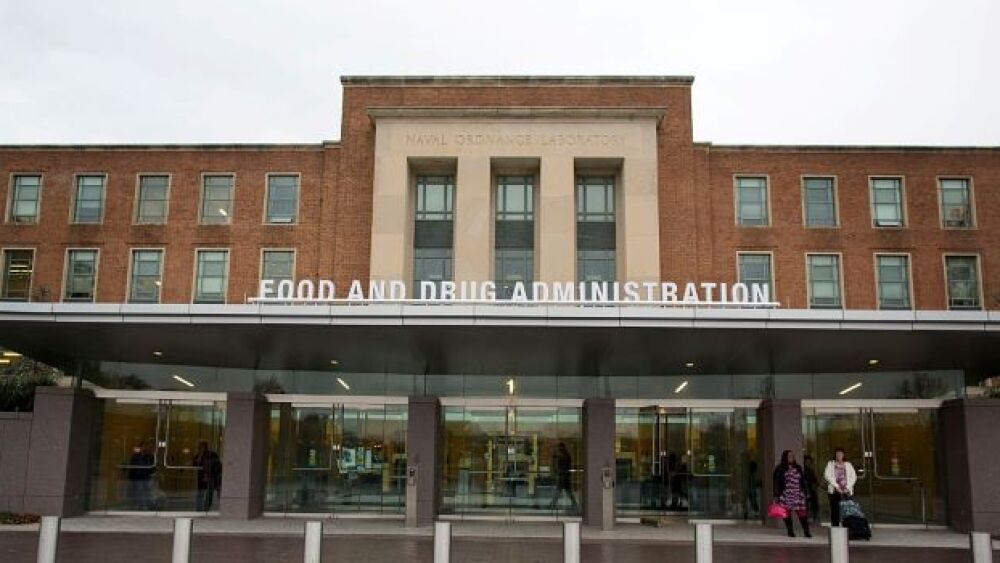The FDA committee voted 8 yes and 14 no. The decision now goes back to the OND to decide the FDDR on Avenue Therapeutics’ IV Tramadol.
Al Drago/CQ Roll Call
On February 15, 2022, the U.S. Food and Drug Administration held a joint meeting of the Anesthetic and Analgesic Drug Products Advisory Committee and the Drug Safety and Risk Management Advisory Committee on Avenue Therapeutics’ IV tramadol.
In the final part of the meeting, which was public, the Advisory Committee made a yes-no vote on the following question: “Has the Applicant submitted adequate information to support the position that the benefits of their product outweigh the risks of the management of acute pain severe enough to require an opioid analgesic in an inpatient setting?”
The committee voted 8 yes and 14 no.
The decision now goes back to the FDA’s Office of New Drugs (OND) to decide the Formal Dispute Resolution Request (FDDR). It will provide a response within 30 calendar days.
On June 14, 2021, the FDA issued a second Complete Response Letter (CRL) to Avenue over its New Drug Application (NDA) for IV tramadol. The letter indicated that the “delayed and unpredictable onset of analgesia with IV tramadol does not support its benefit as a monotherapy to treat patients in acute pain.”
It also indicated the safety and efficacy data were insufficient. The company stated that it didn’t agree with the agency and planned to continue to pursue regulatory approval. The first CRL was issued on October 12, 2020.
Then on October 25, 2021, Avenue reported it had received a written interim response from the FDA’s OND to the company’s formal dispute resolution request. The response indicated the OND needed additional feedback from an advisory committee to help plan on the FDDR.
The first CRL in October 2020 indicated that even though the pivotal Phase III trials demonstrated statistically significant outcomes for the primary endpoint and many secondary endpoints, the agency couldn’t approve it in its present form. The agency did not believe that the drug was safe for the intended patient population, which is patients in acute pain who require an opioid. They specifically noted that “if a patient requires an analgesic between the first dose of IV tramadol and the onset of analgesia, a rescue analgesic would be needed. The likely choice would be another opioid, which would result in opioid ‘stacking’ and increase the likelihood of opioid-related adverse effects.”
At the time, Dr. Lucy Lu, president and chief executive officer of Avenue, stated, “We believe that our extensive clinical database strongly supports the value of treatment with IV tramadol as an effective alternative to intravenous Schedule II conventional opioids. We firmly stand behind the safety data in our NDA and the ultimate approvability of IV tramadol.”
According to a brief by Public Citizen, IV tramadol requires a median time of 106 minutes after surgery for effective pain relief. However, IV morphine only requires 42 minutes. Dr. Sidney Wolfe, senior advisor to Public Citizen’s Health Research Group, testified at the advisory committee meeting, saying, in part, “Since ‘approximately 50% of patients administered tramadol IV 50 mg did not report meaningful pain relief in 6 hours,’ I agree with FDA’s concern that patients will need additional opioids, thereby severely reducing the efficacy of the IV tramadol and increasing risk such as respiratory depression.”
On December 15, 2021, Avenue announced the closing of its public offering of 1,910,100 shares of common stock at a public offering price of $1.07, which brought in about $2 million. It trades on The Nasdaq Capital Market under the ATXI ticker symbol. The Nasdaq had halted trading yesterday due to the advisory committee hearing.
Based in New York City, Avenue Therapeutics was founded by Fortress Biotech. The company’s sole focus is on developing an IV formulation of tramadol as an alternative to conventional opioids.





